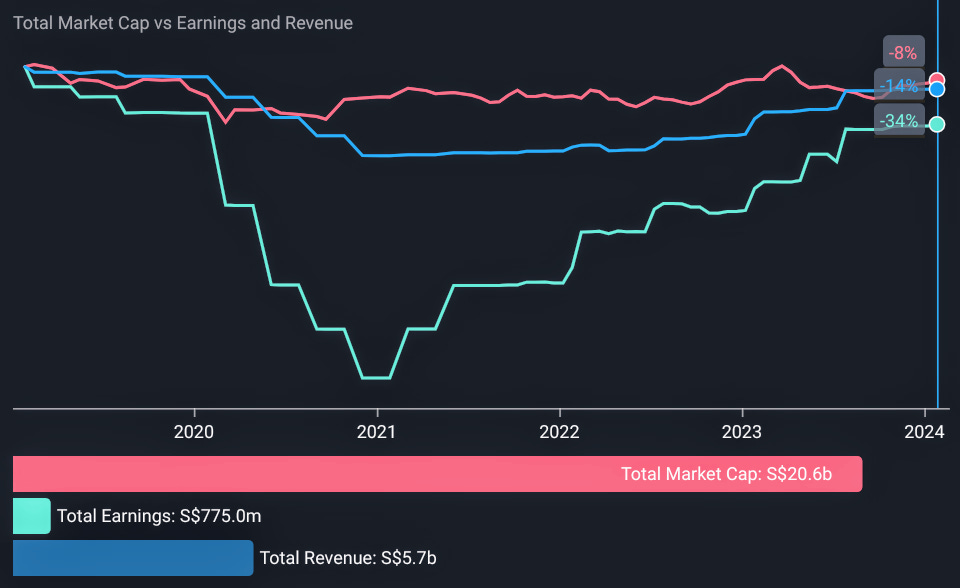Unveiling 'Swiftonomics': Taylor Swift's Economic Impact and Global Touring Strategies
Discover how cultural icons drive economic growth and development.
‘Swiftonomics’ is a term coined to describe the economic impact generated by the global superstar Taylor Swift, particularly through her tours and cultural influence. It refers to the significant influence she has on various economic sectors, such as tourism, entertainment, and consumer spending, as well as the strategies and decisions made by governments and businesses to leverage her popularity for economic gain. This includes exclusive concert agreements, tourism promotions, and other initiatives aimed at capitalizing on Taylor Swift’s immense fanbase and cultural significance to drive economic growth and development.
The emergence of ‘Swiftonomics’ unveils a captivating narrative of the profound economic influence ignited by the global superstar’s tours, particularly within the Southeast Asian landscape. Economic analyst Augusta Saraiva initially identified this phenomenon, shedding light on a post-COVID demand surge catalyzed by Taylor Swift’s Eras Tour, which has sparked significant economic activity across nations.
Exclusive Concert Deals: Singapore’s Strategic Maneuver and Thailand’s Reaction
Reports from Sky News reveal Singapore’s strategic maneuver to secure exclusive rights for Taylor Swift’s performances, preventing her from touring other Southeast Asian countries, as disclosed by Thailand’s Prime Minister Srettha Thavisin. This exclusive agreement, brokered by concert promoter AEG, positioned Singapore as the sole host for Swift’s “The Eras Tour” within the Association of Southeast Asian Nations (ASEAN). Thavisin disclosed the substantial financial incentives proposed by Singaporean authorities, ranging between US$2 million and US$3 million per concert, leading to six sold-out performances scheduled at Singapore’s National Stadium in March, accommodating up to 55,000 attendees.
Since the nadir of pandemic-induced lockdowns in January 2021, Singapore’s hospitality sector, encompassing leisure facilities, casinos and gaming, restaurants, hotels, and resorts, has experienced a resurgence, with total revenues soaring by an impressive 78% to reach S$5.7 billion (US$4.2 billion). Despite this recovery, the industry still grapples with a shortfall, standing at 14% below its pre-pandemic peak.
For comparison, the following outlines the ranking and the trajectory of recovery or decline in the total revenues of the hospitality industries within the ASEAN-6 countries since pre-pandemic March 2019:
Malaysia: US$11.6 billion (up 13%)
Thailand: US$7.3 billion (up 51%)
Philippines: US$6.9 billion (up 40%)
Singapore: US$4.2 billion (down 14%)
Indonesia: US$1.9 billion (up 19%)
Vietnam: US$103 million (down 58%)
Visitors attending Swift’s Singapore tour are projected to inject a total average of US$430 million into the economy through spending on accommodations, dining, and various leisure activities during their stay, thereby making a substantial contribution to Singapore’s economic vitality.
Thavisin, a former real estate magnate, praised Singapore’s astute move, reflecting on missed opportunities for Thailand. Despite acknowledging the potential economic benefits of hosting Swift’s concerts in Thailand, Thavisin regretted the lack of awareness about the exclusive agreement, emphasizing the transformative impact such events can have on a country’s economy.
Indonesia’s Visionary Agenda: Ambitious Plans for Growth and Innovation
Southeast Asia’s largest economy, Indonesia, led by Minister of Tourism and Creative Economy Sandiaga Uno, aims to leverage the ‘Swiftonomics’ effect to revitalize its tourism sector. Uno outlined his vision during an interview on Bloomberg TV’s “Bloomberg Markets: Asia,” detailing plans to replicate Singapore’s success by attracting major cultural and entertainment events to Indonesia. Drawing inspiration from Swift’s influence on regional tourism, Uno emphasized the importance of adopting similar strategies to bolster Indonesia’s tourism industry, emphasizing the need for innovative incentives and strategic investments.
Uno highlighted the IDR1 trillion (US$64 million) Indonesian Tourism Fund as a pivotal instrument in securing high-profile events and diversifying tourism offerings, encompassing music, sports, and cultural spectacles. Indonesia plans to exempt more nationalities from visa requirements while simplifying permits to make it easier to host events in the country. With a focus on attracting quality tourists and promoting sustainability, Indonesia aims to position itself as a premier destination for travelers seeking diverse and eco-conscious experiences.
Conclusion and Insight
The concept of ‘Swiftonomics’ underscores the significant economic impact Taylor Swift’s tours exert, particularly in Southeast Asia, as demonstrated by Singapore’s exclusive concert deal and Indonesia’s ambitious plans to leverage Swift’s influence for tourism revitalization. The strategic maneuvering by Singapore to secure exclusive rights for Swift’s performances highlights the economic potential inherent in hosting major cultural events, prompting reflection on missed opportunities in neighboring countries like Thailand. Meanwhile, Indonesia’s proactive approach, spearheaded by Minister Sandiaga Uno, underscores the importance of innovative strategies and investments to capitalize on the ‘Swiftonomics’ effect for sustainable tourism development. As nations vie for prominence in the global entertainment landscape, the economic insights gleaned from Swift’s tours serve as a compelling narrative of the transformative power of cultural icons in driving economic growth and development.





